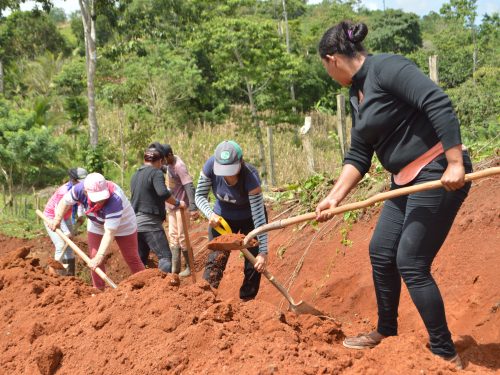
Even though the latest engineering report presented by the Playas de Nosara ASADA (Administrative Associations of Rural Water and Sanitation Systems) affirmed the water infrastructure’s can last 20 years with maintenance, the ASADA finds itself with a new question: how can they continue providing water service if growth exceeds the yearly 5% used in the study?
According to ASADA Vocal Olivier Von der Weid, the hydraulic engineer used the numbers of new hook ups to designate the 5% growth rate to base the 20-year study projections on. This decision was derived from the ASADA’s average historical growth rates. For 2013, Playas de Nosara experienced an 8-10% growth rate but the previous three years had a 2% growth rate, hence the five percent average.
But what Freddy Humberto Zúñiga, the engineer that conducted the study, did not evaluate is how much water will be in the local aquifer. According to the ASADA board, this is something impossible to predict since we don’t know how much it will rain annually or how much water the aquifer will have during dry season.
However, based on historical data, the outlook is not positive. ASADA President Carlos Yaniz says that there has been a drought for the past four years and feels it’s important to conserve the water we do have. Yaniz added, “We have to change the mentality (of the community), which is tough. When they can’t bathe, that’s when they call us.”
So without enough current financial power to invest in expanding the infrastructure and constructing alternate water sources, the ASADA’s number one priority is to maintain it. Treasurer John Ermatinger affirms, “Our obligation is to do everything we can to supply water to people who are asking for it and legally have the right to have it.”
Von der Weid says that if the ASADA’s rate increase request to the Price Regular Entity (ARESEP in Spanish) is granted, it will provide, along with controlled growth, a more stable financial platform to expand the water supply.
“Our community and water system would profit from the responsible growth of Nosara. We never would have had extra money in the bank like we did before [the rate decrease] if we didn’t have new buildings paying impact fees,” said Von der Weid.
98% of new clients pay the voluntary impact fees, which covers the impact on the existing water system from new construction so existing customers aren’t negatively affected. It is a very important financial source for the ASADA along with the monthly voluntary fees, but since water is a guaranteed right in Costa Rica, the need for future expansion is inevitable.
Access to water is a “human right” with exceptions
According to the Constitutional Chamber through its case law interpretations, the right to water is a fundamental right. The original interpretation stemmed from the 1988 San Salvador Protocol when international parties, including Costa Rica, established the right to a healthy environment and basic public services. Additionally, the United Nations has interpreted water as an essential human right.
But there are exceptions to this basic “right” here since the Constitution doesn’t universally defend it (the Constitutional right to water is only technically recognized via draft legislation). Water service is only guaranteed if it directly relates to health, is technologically feasible, doesn’t saturate the system thus affecting the right of existing users or present other technical issues such as pollution or salt water intrusion.
Yet, a technical study by AyA must prove conflicts in order for water service to be denied or for a moratorium to be declared on permits and meters.
The Board feels confident they have enough financial proof to legally raise their prices, but only AyA and ARESEP can make that decision.
Managed growth and tourism
It costs hundreds of thousands of dollars to build an aquifer for an alternate water source, as well as the legality of having to own the land it’s on. Therefore, Nosara Civic Association (NCA) President Alvin Rosenbaum thinks that managed growth via zoning measures and fact-based planning is necessary given 2013’s figures.
Rosenbaum said that “If we have too much regulation then we become something different, but if we don’t have enough then we need to know the consequences in hard numbers.”
To be proactive and solution-oriented, the NCA recently assembled a Growth Management Committee. With a Plan Regulador (Regulation Plan), regulation enforcement would be kept a local level allowing the community to retain control. “We aren’t anti-development” Rosenbaum explains, “We want to keep the character of this place, but have jobs for people in town.”
Originally, Playas de Nosara was residential and not considered a tourist destination. With public exposure and time, the area has become a global surf and yoga destination with recent press from The New York Times, National Geographic and CNN.
Tourism stimulates the economy and has become a profitable evolution. However, Rosenbaum clarifies, “We (the NCA) don’t want high volume tourism. We want high value tourism. We want people to come here and feel like they got a lot for their money.”







Comments